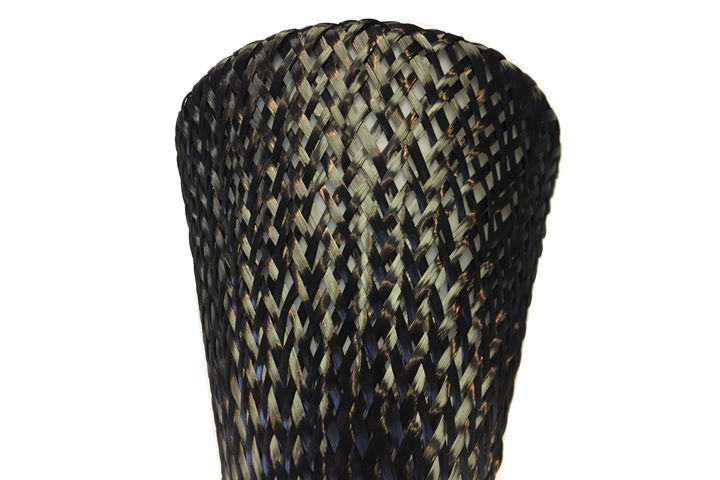Carbon ThreeSixty wins funding to explore feasibility of novel hydrogen storage architecture
Under project CHiDEs, researchers are to study carbon fiber 3D woven fabrics for more configurable storage geometries and higher volumetric efficiency.

Braid sleeve. Photo Credit: Carbon ThreeSixty Ltd.
Lightweighting solutions provider Carbon ThreeSixty Ltd. (Chippenham, U.K.) recently won grant funding from the Niche Vehicle Network’s annual competition of £35K (approximately $45.5K) for a “rapid fire” feasibility study, Project CHiDEs (Configurable Higher Density Energy Storage: Future Hydrogen Storage), which will start immediately. According to Carbon ThreeSixty, its research into hydrogen storage system architecture could reduce the barrier to the adoption of fuel cell powertrains.
The Niche Vehicle Network provides match-funding for niche U.K.-based vehicle technology organizations to accelerate the development of zero-emission and low-carbon vehicle technology from concept through to production. Current projects demonstrate accelerated development of technologies based around electric machines and power electronics; energy storage and energy management systems; fuel cells; lightweight vehicle body, chassis and powertrain structures; aerodynamics for improved energy efficiency; and/or other disruptive, low-carbon vehicle technologies.
CHiDES is a project conceived and managed by Carbon ThreeSixty to determine the feasibility of a revolutionary storage architecture for hydrogen fuel. The company will explore the use of carbon fiber 3D woven fabrics to produce arrays of lined, reinforced pocketed structures to enable configurable geometries and higher volumetric efficiency for hydrogen storage, as well tailored fiber placement (TFP), through-thickness reinforcement, braiding and overwrapping (filament winding) technologies. Current storage solutions are bulky, large cylindrical vessels, Carbon ThreeSixty says, that significantly compromise vehicle design. CHiDES will lead to the offer of a completely novel storage solution.
“Carbon ThreeSixty has grown significantly in recent years, a significant proportion of this resulting from our ongoing commitment to value-adding product R&D in high-growth markets,” says Ed Allnutt, managing director at Carbon ThreeSixty, which specializes in the design and manufacture of advanced composite structures. “The transition to clean fuel powertrains in niche automotive provides some unique challenges, and we’re delighted that we can begin work in earnest on a novel set of solutions to this problem.”
Related Content
-
Composite resins price change report
CW’s running summary of resin price change announcements from major material suppliers that serve the composites manufacturing industry.
-
Highly tunable, woven lattice reinforcements target automotive structures
CAMX 2023: Startup Weav3D will be demonstrating its two collaborative automotive demonstrator parts and present two conference papers.
-
3D-woven composites find success in aerospace, space
CAMX 2024: Bally Ribbon Mills experts are displaying the company’s various joints, thermal protection system (TPS) technologies and other 3D woven composites for mission-critical applications.













